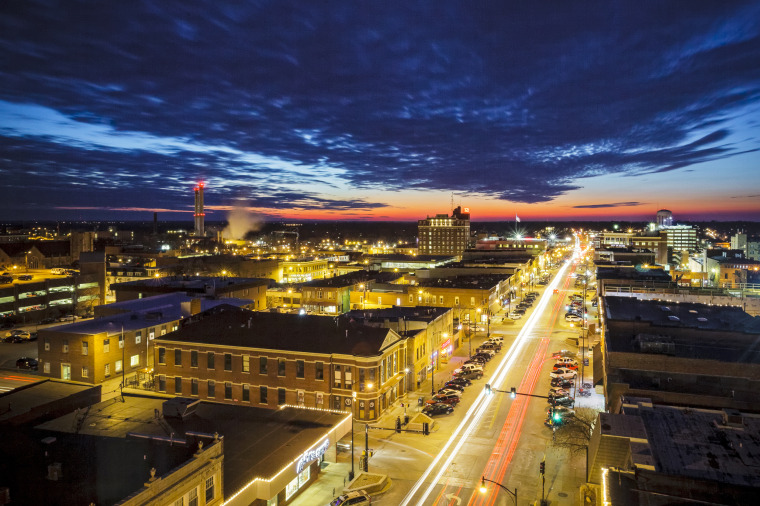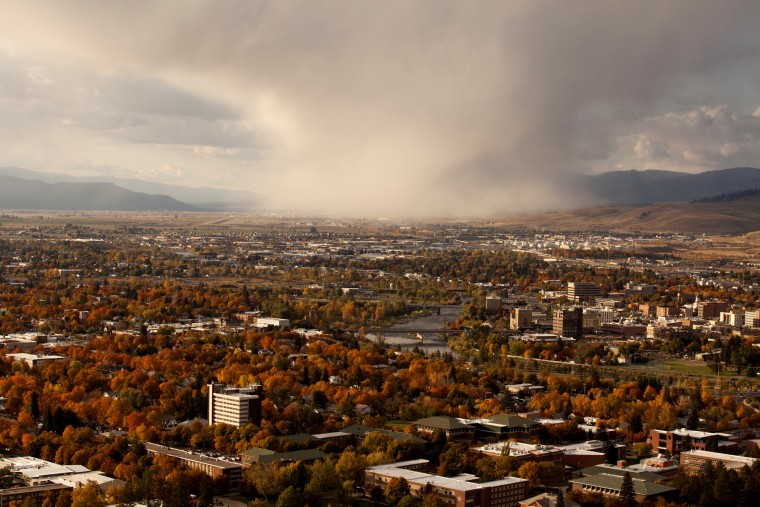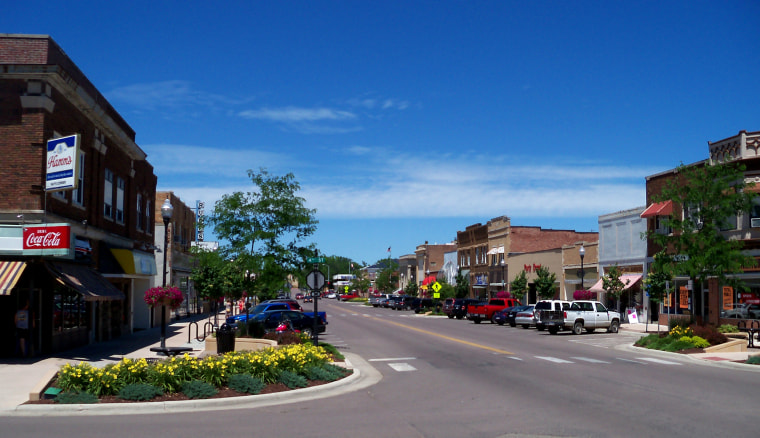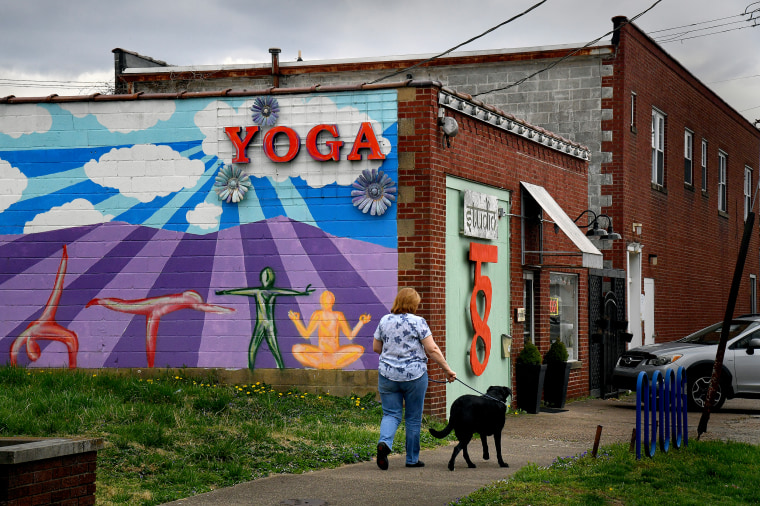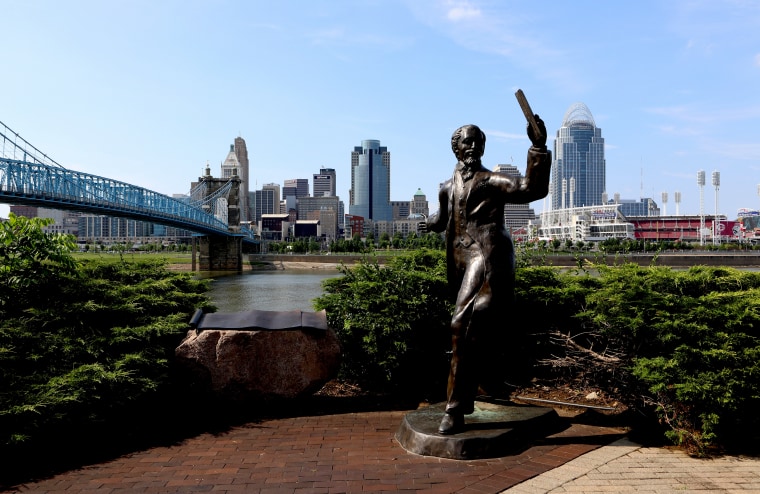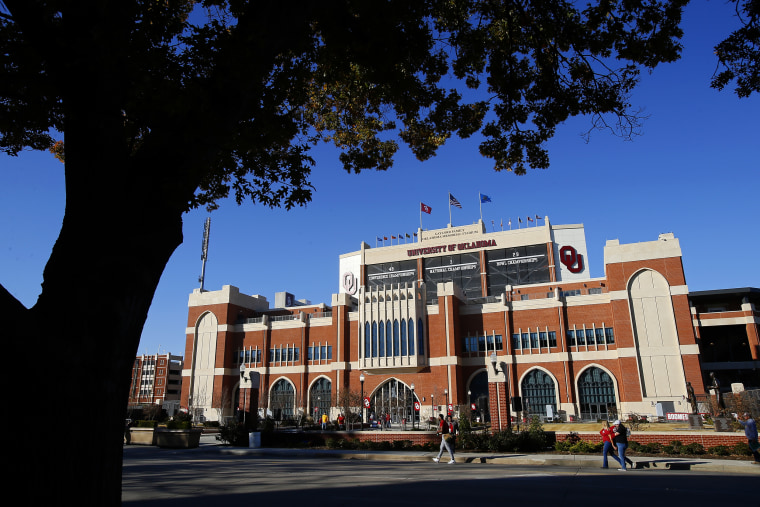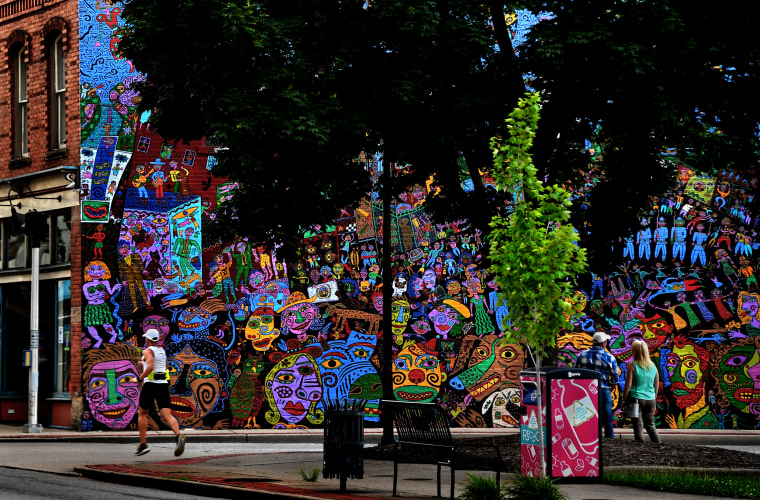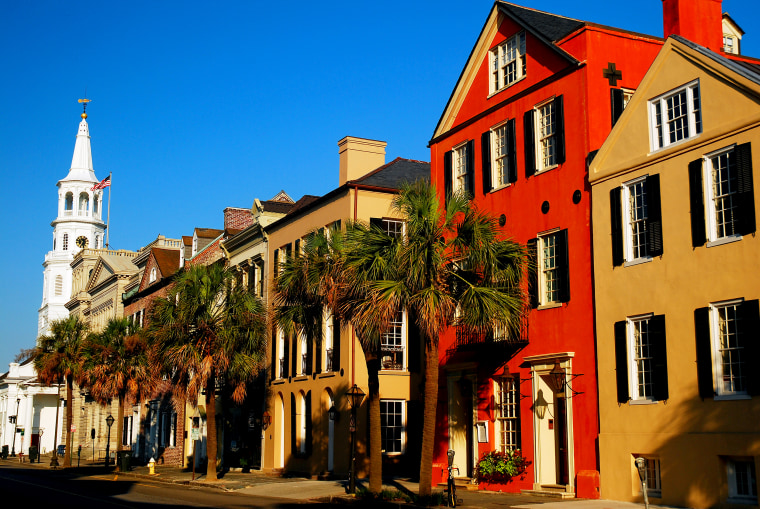Transgender Latina Makes History as Evangelical Lutheran Pastor
Before coming out as transgender, Nicole Garcia prayed daily that God would “fix” her. When her prayers weren’t answered and the feeling in her gut didn’t go away, she gave up on religion.
Now, nearly four decades later, Garcia stands behind the pulpit at Westview Lutheran Church in Boulder, Colorado, and delivers weekly sermons to a congregation of more than 100 faithful as their ordained pastor.
“Nobody can question my faith, my devotion to Christ, my devotion to the church. That’s why I’m the pastor here,” Garcia,who turned 60 Thursday, told NBC News. “Being trans is secondary.”

Garcia, who delivered her first sermon at Westview earlier this month, is the first known transgender Latina to serve as a pastor within the 4 million-strong Evangelical Lutheran Church in America — an unanticipated position for someone who grew up in the Roman Catholic Church and left religion entirely for nearly 20 years.
‘I had never felt comfortable in my own skin’
One of Garcia’s earliest memories is of her grandmother kneeling on the cold kitchen floor of her Colorado farm, praying the rosary in Spanish while the voice of Francisco “Paco” Sanchez buzzed through the radio. She still has the worn black rosary that her grandmother gave her when Garcia was just five years old.
Growing up in the ‘60s, Garcia said she had a traditionally paramount role as the “oldest son” in a devoutly Roman Catholic Latino family. She went to church two to three times each weekend and played guitar in the choir. But she said something about her life was off-kilter.
Related
After lesbian judge denied Communion, nearby church hosts inclusive service
As she got older, an uncomfortable feeling loomed over her, though she struggled to put a finger on exactly what it was. As a teenager, Garcia recalled, she loved to dress up in women’s clothing. She’d even stash outfits in hidden spots around her house to make sure that side of her stayed secret.
“I had never felt comfortable in my own skin. I had always been chastised for doing the wrong thing,” Garcia said. “Everything just felt wrong. I did everything my male cousins would do, but it was just awkward and it didn’t come naturally.”
She said she prayed every day that God could take those uncomfortable feelings away, but her prayers continued to go unanswered. In 1982, in her early 20s, Garcia left the church.
For the next few years, Garcia descended into a spiral of alcohol abuse and partying, which she said became her excuse for “dressing up” and dating men. But after years of heavy drinking and hopping between low-paying retail jobs, she found herself living in a cousin’s trailer in Boulder and going through alcohol withdrawals.
“I realized something had gone terribly wrong,” she said. “I decided it was time to change my life.”
‘I had my come-to-Jesus moment’
Garcia moved out of the trailer and into an apartment in nearby Longmont, where she met a woman at karaoke night. The two dated for a year before they married at a Catholic church in 1994. They eventually bought a house in downtown Denver, and Garcia found a new career as a corrections officer.
From the outside, it looked like Garcia had turned her life around. However, she still felt like she didn’t belong in her body. Every morning before work, Garcia said, she wanted to put on women’s clothes, and when it came time to put on her corrections uniform, it felt like a costume.
“As soon as I got home and I took off the uniform, I was exhausted. All my energy was used just to perform that day,” she said. “I’d drink a pint of Jack Daniels and three or four beers just to be able to calm down and relax.”
Related
United Methodist division declares itself a ‘safe harbor’ for LGBTQ clergy
Garcia’s marriage crumbled after 8 years, and her wife asked for a divorce in 2002. After they separated, Garcia was sitting at her kitchen table, wondering why she had thrown away what seemed like an ideal life.
“I had my come-to-Jesus moment. It wasn’t one of those, “Oh please, oh please, help me,’” she explained. “It was more, “Alright you son of a b—h, if I’m going to come back, you better step it up this time.’”
‘I’ve always been Nicole’
In a fortuitous turn of events, just two days after her “come-to-Jesus moment,” Garcia received a message offering free therapy sessions for corrections officers. After only a few appointments, Garcia unearthed the uneasy feeling she had struggled with her whole life.
“Within a month or so, I told her my deepest, darkest secret: That for my entire life, as long as I can remember, I have always loved wearing women’s clothing,” she said. “I realized in that moment that I’ve always been Nicole; I’ve always been a woman.”
“I knew at that point I had to transition,” Garcia added. “I could finally put a name on what I was going through.”
Garcia’s therapist recommended she visit the Gender Identity Center of Colorado. It was there that she met another transitioning law enforcement officer who encouraged her to attend a service at the Saint Paul Lutheran Church in Denver.
“I was sure I would walk in and they’d say, “Look at that man in a dress,” but they didn’t,” Garcia recalled. “They were lovely; they embraced me. I just felt at home.”
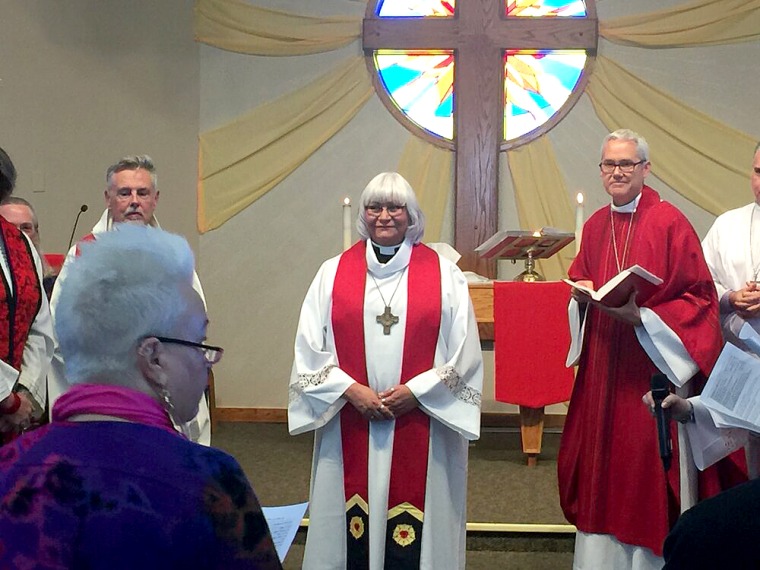
In 2003, shortly after she started her transition, she became a Lutheran, and soon after began working with an organization called Reconciling in Christ, which works toward full acceptance of the LGBTQ community within the Lutheran denomination. Five years later, Garcia was elected to the group’s national board of directors as their transgender representative, and in that position she continued to campaign for the advancement of LGBTQ people into pastoral positions.
While Garcia immediately felt accepted by the Lutheran congregation early in her transition process, she said her mother had a harder time accepting that the “oldest son” in their Roman Catholic family wanted to transition to a woman. For the first few months, she said her mother stopped speaking to her entirely. When they finally reconciled, it was under the pretense that Garcia had to present as male in their home, combing her long hair back into a ponytail and wearing her corrections officer uniform.
During her yearslong transitioning process, Garcia helped take care of her stepfather, Joe Mayes, who had terminal bone cancer. Garcia said Mayes, who died of cancer in 2005, immediately accepted her as Nicole.
“I would ask him, ‘Papa, why were you so accepting and loving?’” she recalled. “He said, ‘Because I finally saw you happy. For so many years you were morose, you were drunk, you were angry, and now you look happy.’”
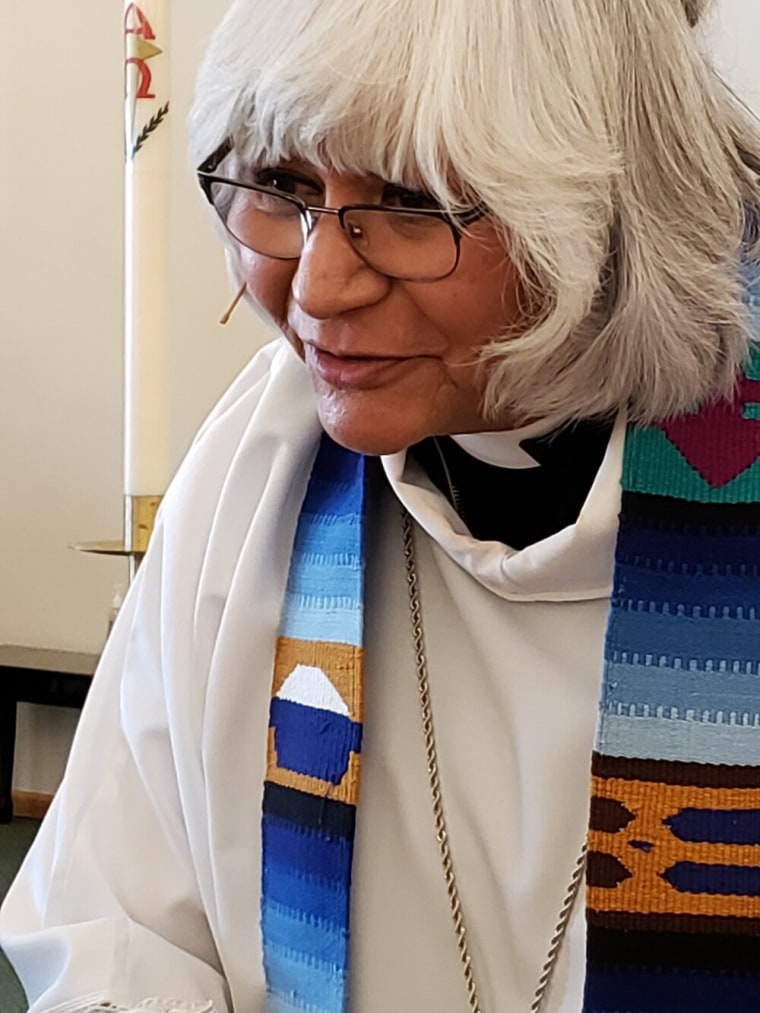
Though it took nearly a year for Garcia’s mother to accept her as Nicole, her mother was happy to see her child had returned to the church.In 2013, a decade after she started her transition and found her way back to Christianity, Garcia left her position as a corrections officer to attend seminary school.
During her years at seminary, Garcia became the director of congregational care at Mount Calvary Lutheran Church in Boulder, and her presence in the community became even more formidable. At her ordination in November of this year, over 200 people came to celebrate her trailblazing service as an advocate and leader among Lutherans.
Garcia was then asked to step in at the newly formed Westview Lutheran Church in Boulder as their pastor. The church’s first service was Dec. 1, and Garcia stood before the congregation, a vibrant red stole draped over her shoulders.
Garcia said she hopes her presence behind the pulpit encourages other LGBTQ people and people of color to step forward through faith.
“As a transgender Latina, I bring a breath of fresh air into all the places I walk into,” she said.
